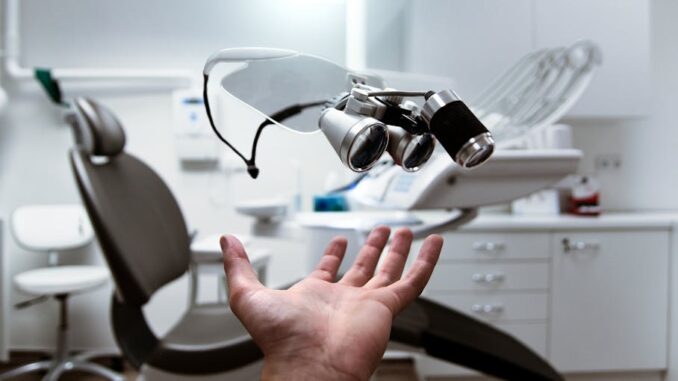
Summary
This article explores the transformative impact of Artificial Intelligence (AI) on India’s healthcare sector, projecting a $30 billion contribution to the nation’s GDP. We delve into the key applications of AI, from diagnostics and drug discovery to personalized medicine and remote patient care, highlighting its potential to revolutionize healthcare delivery and improve patient outcomes. Finally, we examine the challenges and opportunities that lie ahead for India in harnessing the full potential of AI in healthcare.
** Main Story**
AI is making waves across industries globally, and healthcare is no exception. India, in particular, stands to gain massively. Projections suggest AI could inject a whopping $30 billion into the nation’s GDP, and that’s something to get excited about. It’s all thanks to the increasing embrace of digital tech, the rise of chronic illnesses, and the government’s big push for a more connected digital health system.
But where exactly is AI making its mark? Let’s dive in.
AI’s Key Roles in India’s Healthcare Revolution
-
Diagnostics and Medical Imaging: Think about how much faster and more accurately we could diagnose diseases if we had a super-powered assistant analyzing X-rays and MRIs. That’s precisely what AI algorithms are doing. They’re catching things human eyes might miss, leading to earlier and more accurate diagnoses, especially for conditions like cancer and heart disease. And, you know, there are some pretty cool Indian startups developing AI-driven imaging solutions, further fueling this growth. I remember hearing about one that can detect early-stage lung cancer with incredible accuracy.
-
Drug Discovery and Development: Discovering new drugs is a notoriously slow and expensive process. However, AI is changing this! By identifying promising drug candidates, predicting how drugs will interact with the body, and optimizing their design, AI is speeding up the whole process while cutting costs. Indian biotech startups are already jumping on board, using AI to develop patient-focused treatments.
-
Personalized Medicine: Imagine getting a treatment plan that’s tailor-made just for you, based on your genes, medical history, and lifestyle. AI makes this possible by analyzing all that data to create personalized approaches. I think it’s this sort of approach that will make medicine truly patient-centric. Ultimately, you know, it helps to boost therapy effectiveness, minimize side effects, and, well, keeps patients happier, doesn’t it?
-
Remote Patient Monitoring and Telemedicine: In a country as vast as India, getting access to healthcare can be a real challenge, especially for those in remote areas. AI-powered platforms are helping to bridge that gap by enabling remote monitoring of patients’ vital signs and facilitating virtual consultations. Telemedicine services are even breaking down language barriers, making healthcare more accessible to everyone.
-
Streamlining Clinical Workflows: Let’s face it, healthcare professionals spend a lot of time on repetitive administrative tasks. AI is stepping in to automate things like appointment scheduling, claims management, and patient record handling, freeing up doctors and nurses to focus on what they do best: caring for patients. AI-powered virtual assistants are also helping to streamline operations and improve patient-provider relationships.
Roadblocks and Opportunities Ahead
Now, it’s not all smooth sailing. There are some hurdles we need to overcome to fully unlock AI’s potential in Indian healthcare:
-
Data Privacy and Security: Patient data is incredibly sensitive, and we need to make sure it’s protected. Robust data governance frameworks and security protocols are essential to build trust and encourage the wider adoption of AI. No one wants their personal medical information to fall into the wrong hands, do they?
-
Regulatory Framework: A clear and supportive regulatory framework is needed to guide the development and deployment of AI-powered healthcare solutions. This will ensure AI applications are safe and effective while, you know, still encouraging innovation.
-
Infrastructure Limitations: The truth is, not everyone in India has access to reliable internet and digital infrastructure. This digital divide needs to be addressed through strategic investments to ensure equitable access to AI-powered healthcare services. It’s no good having amazing AI tools if people can’t actually use them.
-
Workforce Development: We need to train healthcare professionals to use AI tools effectively. Training programs and educational initiatives are needed to equip them with the skills to leverage AI in their practice. You can’t expect people to use a new technology without providing them with the necessary training, can you?
Despite these challenges, the opportunities for AI in Indian healthcare are huge. I believe that with the right investments, policies, and collaboration, India can become a global leader in AI-powered healthcare. What do you think, could this become a reality?


AI diagnosing faster than my doctor can say “co-pay”? Suddenly, I’m picturing robot doctors making house calls in self-driving ambulances! Let’s just hope they’re programmed to offer lollipops after a virtual shot. Anyone else think we should start investing in AI-proof white coats?
That’s a funny image! I think you’re right, the speed of AI diagnostics is a game-changer. The house calls comment is interesting because this could allow specialists to support rural doctors to make better diagnoses. Perhaps we should invest in training so the AI doctors can explain results in an understandable way!
Editor: MedTechNews.Uk
Thank you to our Sponsor Esdebe